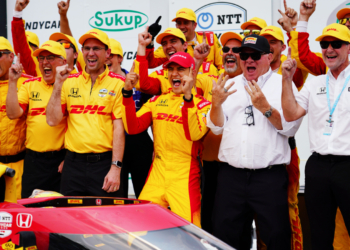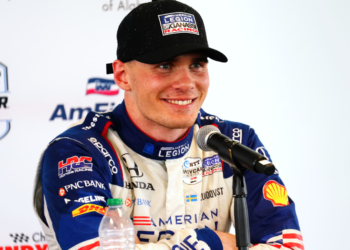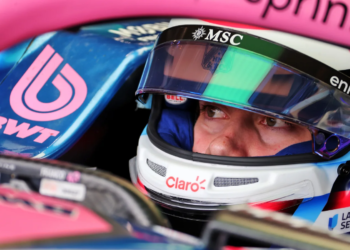Jaguar's Formula E chief James Barclay believes that motorsport is in a "transition phase" through the gradual rise of electromobility in the automotive industry.
Poised to enter its fifth season of competition this December, the Formula E Championship has made a large impression in the landscape of motorsport, working hand-in-hand with the ever-growing EV market and aligning with the future direction of the automotive industry, with government policies pointing towards the eventual primacy of the electric car.
As a championship with a prime focus on the internal combustion engine while including elements of hybrid and electric power, Formula 1 could see itself switch to an all-electric championship within a decade if it was in the sport's best interests according to F1's director of motorsports, Ross Brawn.
With Formula E holding an exclusive licence with the FIA for 25 seasons of electric racing, however, it is understood that the earliest Formula 1 could go all-electric is 2039 although FE founder Alejandro Agag would be open to discussions if F1 was serious about switching to electric power.
"We all know that the future of cars we drive on the road is quite clear now," said Barclay when talking to Motorsport Week.
"We’re moving away from combustion in the longer term so we’re in a transition phase – it’s not an immediate thing – but we know long term where we’re going to end up.
"I think that makes it quite clear eventually, from a production car perspective. So I think the key question is, ‘does the pinnacle of sport need to be aligned to the cars we drive on the road?’
"We [Jaguar] believe that the two can coexist but also really, what’s great about Formula E is we have exclusivity on electromobility so the powertrain if you like and I think, growing up around motor racing, the most exciting forms of racing are sometimes the ones that you really relate to and that might be hard to drive, but I think that’s why Formula E is just at the start of this really exciting journey," he continued.
"As far as we’re concerned the two can coexist but undoubtedly, you’ve got to realise at some point that potentially there’s a merge. That’s some way away still.
"We’re very respectful of what Formula 1 is and what it has achieved and we’re just at the start of our journey. It’s interesting.
"In the next few years, I’m sure we’ll throw some interesting discussions because Formula 1 has to make that decision. Is it purely about combustion, the show, if it’s about relevance to electric powertrains or if it can’t go that direction because Formula E has that locked up.
Mitch Evans, who has competed for Jaguar in Formula E across the past two seasons, believes Formula 1 risks losing its relevancy to on-the-road technologies, and sees little reason as to why major manufacturers would want to invest in the series.
"What I’m intrigued about is what the manufacturers that are involved in Formula 1 want to invest in. If Formula 1 doesn’t go fully electric in the next 10 years, and it doesn’t look like they probably can unless they come to an agreement with Formula E," he added.
"If you’re a manufacturer, why would you invest in it [F1]? It’s not a real relevance and it’s obviously the performance side but it’s not really a test bed and that’s what Formula 1 was all about.
"I’m intrigued to see what Ferrari and Mercedes and Renault do, and Honda, if they jump, switch over or do they completely pull out? I don’t know. For me, that’s going to be really interesting.”​​​
Formula E's 2018/19 season will commence on December 15 with the inaugural Riyadh E-Prix.






